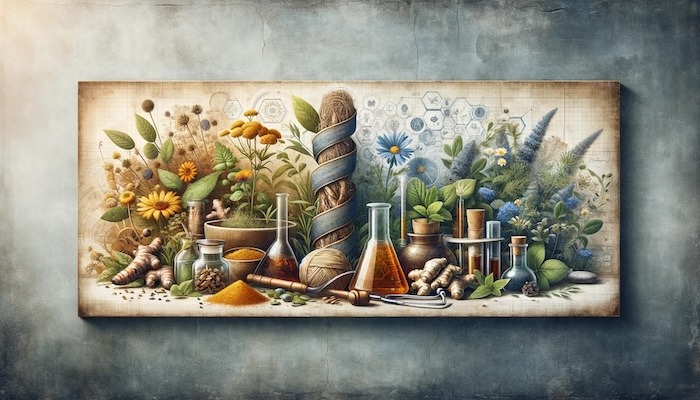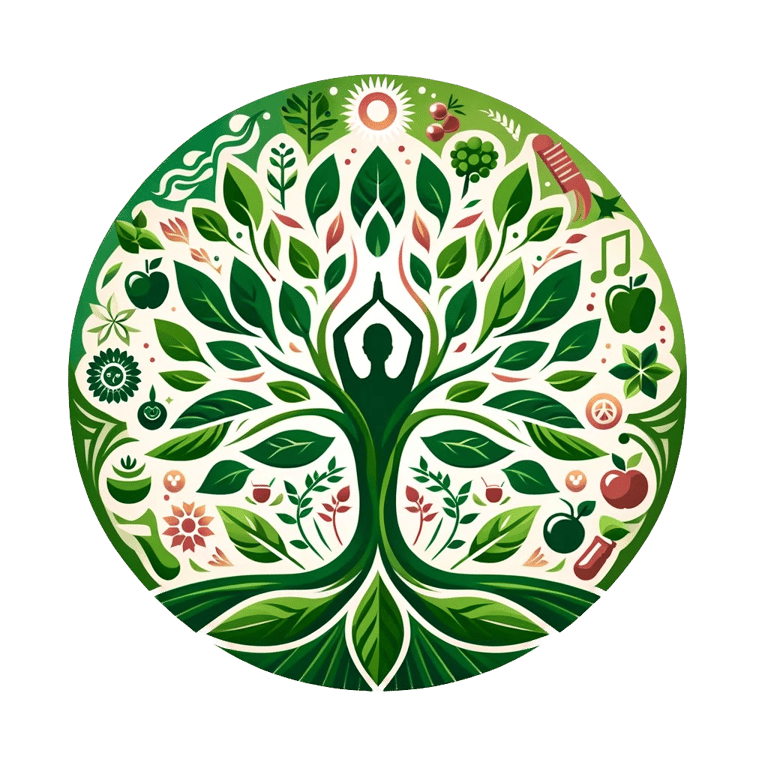
Rediscovering Roots: Traditional Herbal Medicine for Wellness
Bruce Gibson ND
3 min read


Rediscovering Roots: Traditional Herbal Medicine in Modern Wellness
By Bruce Gibson ND
Introduction: Embracing Nature's Wisdom
Hello, friends in wellness! Today, we're exploring how traditional herbal medicine, a treasure trove of ancient practices, is finding its rightful place in our modern lives. This isn't just about health; it's about a sustainable, holistic approach to living that honors our ancestors' wisdom and Mother Nature's bounty. This ancient practice, rooted in diverse cultures worldwide, offers health benefits and a blueprint for living harmoniously with nature.
Historical Perspective: A Global Heritage
Herbal medicine's journey is as old as humanity itself. Each culture has its treasury of medicinal plants – from the Ashwagandha of Ayurveda to the Ginseng of traditional Chinese medicine. These plants have been used for millennia, not just for healing but as integral parts of spiritual and daily life (Chevallier, A., The Encyclopedia of Medicinal Plants, 1996).
Imagine a time when the local healer in a village knew every plant and its healing properties. This was the norm across various cultures, from the rainforests of the Amazon to the mountains of Tibet. Each culture's unique relationship with plants wasn't just about healing physical ailments; it was deeply intertwined with spiritual and community well-being. This rich history is a testament to the enduring power of nature's pharmacy.
Modern Integration: Science Meets Tradition
Fast forward to today, and we're witnessing a remarkable blend of ancient herbal traditions with cutting-edge science. This isn't about replacing modern medicine; it's about complementing it. For instance, while turmeric has been used in Ayurveda for centuries, modern studies reveal its potential in managing inflammation and supporting brain health (Jurenka, J.S., Journal of Medicinal Food, 2009).
Scientific Validation: More Than Just Folklore
It's exciting to see how modern research is unveiling the science behind these age-old remedies. Take, for example, the humble St. John's Wort. Once dismissed as just a weed, it's now recognised for its effectiveness in treating mild to moderate depression, with numerous studies backing its use (Linde, K., et al., British Journal of Psychiatry, 2005).
In today's health-conscious world, we're seeing a beautiful melding of ancient herbal wisdom with modern scientific understanding. Turmeric, once a humble kitchen spice, is now celebrated for its anti-inflammatory properties, backed by studies in the Journal of Medicinal Food (Jurenka, J.S., 2009). Likewise, Ginkgo Biloba, used for centuries in China, is now recognised in Western medicine for improving cognitive function (Kleijnen, J. & Knipschild, P., British Journal of Clinical Pharmacology, 1992).
Sustainable Herbalism: Earth-Friendly Healing
As a naturopath and an advocate for sustainable living, I'm particularly passionate about how herbal medicine aligns with environmental stewardship. It is a way to help individuals be more connected with Nature and their local environment. Choosing locally grown, organic herbs supports our health and contributes to a healthier planet. This approach counters the environmentally damaging practices often seen in mass pharmaceutical production.
Practical Herbal Wisdom: Everyday Applications
Let's bring this wisdom into our daily lives. Whether it's brewing a cup of calming chamomile tea or using peppermint oil for headache relief, herbs can be powerful allies in our wellness journey. Incorporating herbs into our daily routine can be simple yet profound. Growing your own medicinal plants or using common herbs like chamomile, rosemary and peppermint can enhance well-being and foster a deeper connection with nature.
The Global Perspective: Ethical Considerations
The increasing demand for medicinal herbs has a global impact. We must be mindful of where our herbs come from and how their harvesting affects local communities and ecosystems. By choosing ethically sourced herbs, we're not just nurturing our own health; we're also supporting sustainable practices worldwide. Supporting sustainable practices helps preserve herbal traditions and protect the planet (Robbins, C.S., American Herbal Products Association's Botanical Safety Handbook, 2013).
Conclusion: A Harmonious Blend of Old and New
By including traditional herbal medicine in your daily life, we are not just turning back the clock; we're forging a future where wellness is balanced, sustainable, and deeply connected to the natural world. This journey is about rediscovering and respecting the age-old wisdom of our ancestors while embracing the advancements of modern science. Embracing traditional herbal medicine is more than a health choice; it's a commitment to a lifestyle that values sustainability, wellness, and the wisdom of our ancestors. It's about finding balance and harmony, not just within ourselves but with the world around us.
Continuing the Conversation
I invite you to dive deeper into this fascinating world. Start by exploring local herbs, read up on their benefits, and maybe even try your hand at growing some. The journey into herbal medicine is enriching, enlightening, and full of discoveries.
Further Exploration
For those interested in exploring this world further, resources like the National Center for Complementary and Integrative Health provide valuable information. Books like "Medical Herbalism" by David Hoffmann offer an in-depth look at the subject.
Thank you for reading!
Kindly, Bruce Gibson, Australian Herbalist & Naturopath
* The Author Bruce Gibson ND, is publishing a comprehensive series of Articles here, and is currently developing an Online Course on Wholistic Wellness & Naturopathy - stay tuned!
Let's talk about it...

